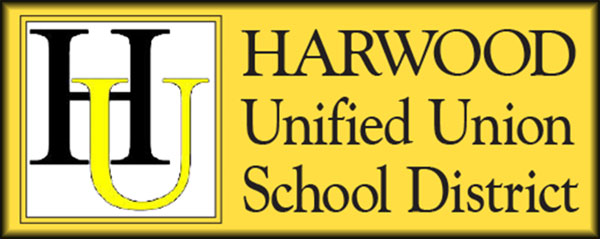This semester, students at Harwood Union High School had the opportunity to sign up for a unique history course, which focuses on the stories of African American, Latino, and Indigenous peoples in the United States.
Different from regular courses offered, this history course is 1) co-taught, and 2) one of the teachers is a student. The class is co-taught by English teacher Jonah Ibson and Harwood senior Hazel Macmillan.
Macmillan has always been interested in politics, and considers social and racial justice issues a strong passion of hers. “I think I’ve always been involved in political issues, and I think it transformed more into activism as I got older. I was inspired a lot by my older sisters, who are both big on activism and justice,” she explained.
Throughout her school years, Macmillan noticed a common trend in the history classes she was required to take: they all told only one side of the story. After noticing that particular aspect, Macmillian wanted to teach another aspect to history course that don’t begin with white settlers as a group of people that remains the focus throughout a course.
“I think we learn a very incomplete history...we learn one narrative, and I really wanted to see that change systemically in our school.” she said.
For Macmillan, seeing that change meant creating her own history course, entirely from scratch.
After discussing her thoughts with Ibson, the two determined that they could create and co-teach their own class focused solely on these topics.
“She (Macmillan) had been studying social and racial justice issues, and wanted to bring what she had been learning back to our community. She and I bounced ideas off of one another, and hit upon the idea for co-teaching a class on the subject. The rest is history!” Ibson explained.
Once the pair had come up with the idea for the class, Macmillan still was not sure how easy it would be to make it a reality.
“At Harwood I had absolutely no backlash getting my class proposed. People were really supportive, and I’ve worked with teachers who wanted to use material I’m teaching in their class, or I will take from what they are using. Everyone here is very open to it,” she said.
Macmillan spent her second semester of junior year planning for the class and developing her own curriculum. There are three units to the class, each focusing on a different group of people and their role in American history and current events. The twelve students enrolled in the class are currently learning about Indigenous people of North America. While reading “An Indigenous Peoples’ History of the United States”, they will discuss the topics of colonization, living on stolen land, and working on defining the massacres of Natives as genocide.
The second unit surrounds African American people, where they will talk about the connections between slavery and mass incarceration. The course will end with a unit on Latino people, where they will read and discuss “Harvest of Empire”, a book which details the history and oppression of Latino people in America.
“We want to talk about and celebrate the resilience of these people,” Macmillan explained.
The class is Harkness based, meaning students learn from group dialogues with their peers rather than teacher led lectures. On an average day in the class, students will be assigned to read and annotate a section of the unit book for homework, and the next day they come together to share their questions and thoughts with the group. One of the main goals of the class is that students dig into these topics and build an understanding on their own, so Macmillan and Ibson decided that Harkness dialogues would be the best fit for the curriculum.
Although it is difficult to tell this early in the school year, Macmillan feels like her students are already getting a lot out of the class. Even so, the course is only one semester long. Untold Stories is a start, but Macmillan thinks that not much will change unless students carry on this learning outside the classroom.
“I just want them to see that these three groups of people are connected in how we oppress them. I want the students to get involved with organizations where they have a bigger role and influence more people, it’s not just this one thing they do for a semester in high school, they need to actually continue this learning and share it...the only way this is actually effective is if it continues,” she said.
Similarly, Ibson hopes that their students will leave the class with a deeper understanding of how they can make a change once the semester is over.
“I hope they all develop a more complex and critical view of American history, and I hope they gain a greater sense of what they can do as individuals to work towards a more equitable society. Both Hazel and I believe that the systems of power need to be reconstructed in this country and that this class is a small but important step in that direction,” she said.
Macmillan is on track to graduate early, but hopes the course will continue and grow even after she leaves Harwood. She envisions that the class will continue to be student led, and hopes that one day the lessons of untold stories will be incorporated into mandatory history classes across the country.







